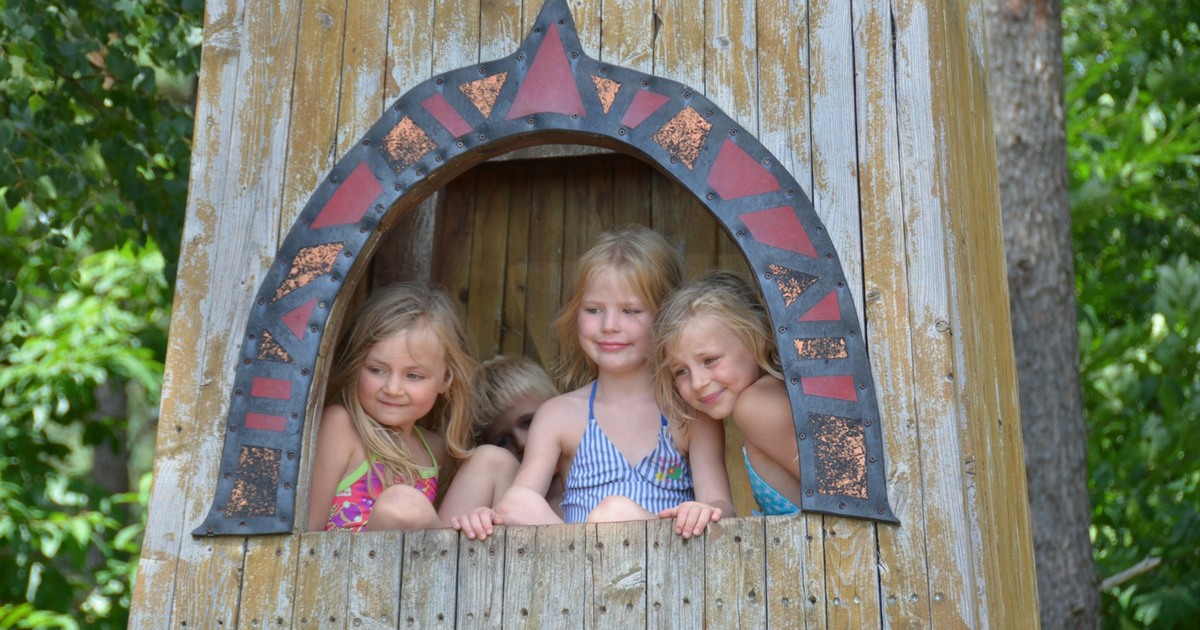
Summer is a difficult time for parents who don’t have as much time on holiday as their children. On the one hand, not having strict timetables is welcome, but on the other, not knowing what to do with your children while your own routine hasn’t changed as you still have to go to work every day, can become a real odyssey.
The truth is that for some time now the number of summer camps for children has been constantly growing. The offers try to blend fun and leisure activities with sport or learning something new, like languages, music, cooking, painting etc.
Public and private institutions do their best year after year to make it easier for parents to decide what to do with their children during the holidays.
So today we’ll tell you, stitch by stitch, all about the different kinds of camps and the best options for each age!
Summer camps from 3 to 7 years old
At the age of three children can enjoy the experience of sharing mornings at a camp with other children of their age. There are plenty of options on the market going from days devoted to handicraft for the very young to cooking classes, giving free rein to the creativity of our little chefs. Biscuits, cakes and bread are things that our budding little cooks can make.
School farms usually hold summer camps for young children in the summer too. Looking after animals on the farm, feeding them, discovering how they live and becoming aware of respect for them are all activities your children will love.
For those with a musical talent or those who want to see if they have one, an interesting option could be a musical camp. They are always fun and the idea is to learn while enjoying yourself.
Language learning is one of the essential options for the summer. At this age language camps usually organize multiple leisure activities in another language, with native teachers from the country in question. Ask at the different academies in your city, specialized in language training for young children, and no doubt you’ll find the best one for your own child.
Summer camps from 8 to 11 years old
In addition to the camps for young children described above, at 8 years old children can start to enjoy camps where they will spend a few days away from home; from five days to a whole week, at youth hostels, thematic camp sites and residences prepared for these young tenants.
At this age children are more self-sufficient, they are not afraid of being without their parents and can live their first experience away from home in complete independence.
Once again, sport, music, adventure and languages are the camp themes most in demand.
Summer camps from 12 years old and up
At this age children are more mature, which means they can spend longer away from home and go further away. They are not afraid or insecure when it comes to leaving their comfort zone.
It’s time to spend a short period abroad and live with a family or in a residence specialized for this kind of exchange. These stays are combined with language learning, with classes during the day and leisure activities to discover the place where they are staying and its customs.
Sports camps are also very much in demand at this age, from water sports in coastal areas to football and basketball campuses, organized by different teams in the region. Playing their favourite sport with their heroes is a luxury for children.
5 advantages of summer camps
It doesn’t matter how old your child is or which camp he chooses, this kind of activity has endless advantages. You should never force them to go – they have to go because they want to – but no doubt you will find the way to convince them, and they will be grateful that you did.
Let’s go over the reasons why it is important for children to go to a summer camp:
- Fun is guaranteed. There is no need to say that camps are focused on children having a good time, and the proof of this is that if you had to convince them the first year, after this they will beg you to let them go.
- Tolerance, as a result of living with other children. Spending some days with other children with different habits and from outside their regular circle is a good way of understanding that there are other ways of having fun and seeing life, all in the most natural way possible.
- Learning by doing. Their world will open up to new places, customs and activities, just by doing and internalizing them at the camp.
- Team work. At camps there are usually activities that imply team work and in which everyone has to take part in order to achieve the goal.
- They gain in autonomy and independence as they can’t go to their comfort zone to solve problems or do the tasks they have been given, and so their self-esteem grows. At the end of the camp they realize that they can do what they have been asked to do without mum and dad’s help, and even more importantly, having fun.
So take a look at the camps in your area and don’t forget that the municipal, provincial and regional governments have a whole load of subsidized camps, with activities for all ages and tastes. There are specific applications dates, ask at the institutions in your region and get “operation summer camp” underway.
Have your children already been to a camp? Tell us all about it. And if you want to find out more, all you have to do is ask us. We’ll be waiting for you in the comments!

